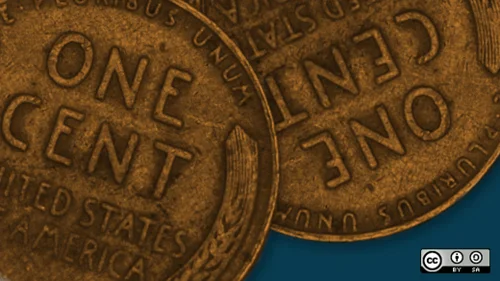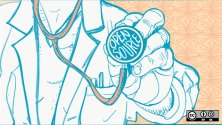Imagine heading to your local grocery store to pick up some things for dinner. As you head down the aisles, you notice there are no prices listed. On anything. You continue to gather your items and head for the checkout stand. You don't know what your grocery bill total or even what the individual items cost. Neither does the cashier. He simply tells you that "you'll get a bill in the mail."
And when you get that bill, you may be paying ten times what the guy checking out next to you pays. Maybe you'll pay less than your next-door-neighbor. Maybe the mail you get tells you that, though you've already eaten them, they don't approve of your Twinkie purchase. So you'll be paying triple for snack cakes. But you'll never really know—it all seems so random.
This would seem intolerable to anyone. But it's currently happening in healthcare, and we have been tolerating it for eons. There is virtually no transparency in medical costs today. Two patients in the same room at the same hospital getting the same surgery by the same surgeon on the same day will get wildly different charges. One may be thousands of dollars higher or lower than the other. Which could be thousands of dollars more or less than what they would have paid at the hospital on the other side of town.
Currently, it is nearly impossible to comparison-shop for a doctor, a procedure, or even a simple test. The information just isn't available to consumers. Guesswork and the internet might get you an estimate—but even that will vary widely.
Why? Because doctors and health insurance providers routinely negotiate rates and agree not to disclose the costs. According to a recent Forbes Technology blog post by Nicole Perlroth, "That means the price tag of a routine colonoscopy, performed in the very same neighborhood—in some cases by the very same doctor—can range from $500 to $3,000 dollars."
You might think since you don't pay for it out-of-pocket, why should you really care? You may not pay directly, but consider this: Health insurance premiums have nearly doubled since 2000--that's three times faster than wages. And each year, we all face increasing deductibles, co-payments, and other out-of-pocket expenses.
According to MarketWatch, average out-of-pocket costs jumped 34% from 2004 to 2007. And the U.S. government predicts that consumer out-of-pocket healthcare expenses will reach an average of $3,301 a year for each household by 2014. It was $2,500 in 2009. What could your family do with an extra $800?
Perhaps its time we finally become customers of healthcare.
Castlight Health is one company that thinks so. They are working to "bring the online-shopping revolution to the giant, opaque healthcare industry." They collect price data, consumer reviews, and individual health-benefit information in one place so that individuals can make informed economical decisions. Their intent is to cast light on medical spending.
Earlier this month, The Wall Street Journal published its second annual list of the 50 most promising venture-backed companies, and Castlight Health took top honors, securing $81 million (so far) from investors.
We hope that this is only the beginning. Increased transparency in healthcare means better arming us all with information about our medical choices—one way to change and improve the way we approach (and pay for) healthcare.






6 Comments